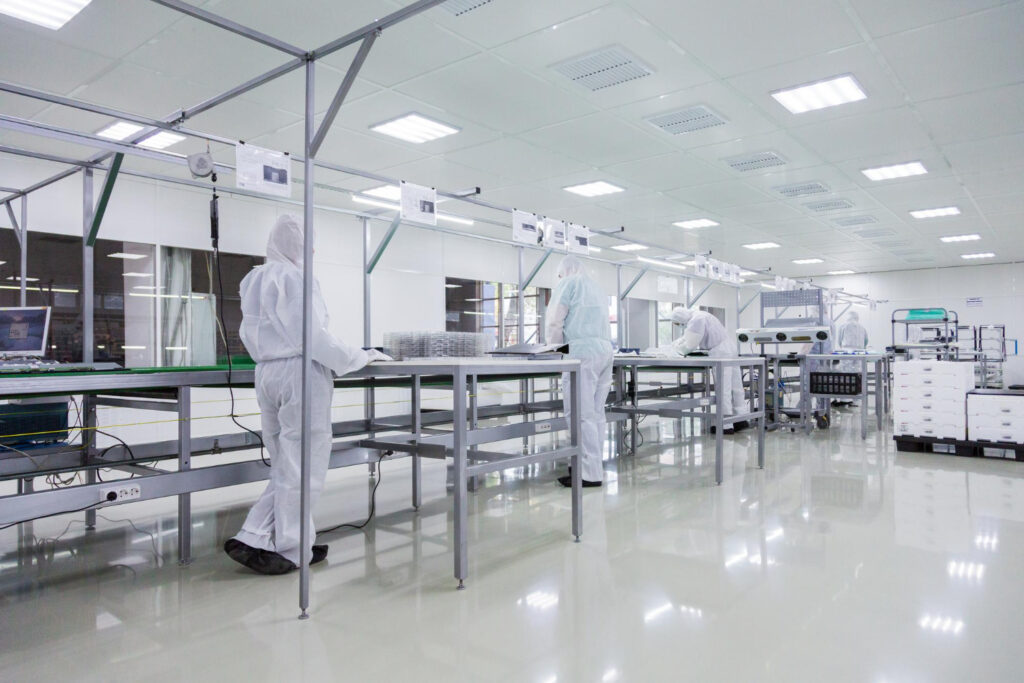In the rapidly evolving field of battery research and development, advanced electrochemical workstations have emerged as indispensable mdcplanners tools. These cutting-edge devices enable scientists and researchers in Malaysia to explore and optimize battery technologies, leading to significant advancements in energy storage solutions. This article delves into the role of advanced electrochemical workstations in Malaysian battery research and development, highlighting their importance, functionalities, and advantages.
What is Advanced Electrochemical Workstations?
Advanced electrochemical workstations are sophisticated laboratory instruments designed to analyze and characterize the behavior of batteries and fuel cells. They provide researchers with comprehensive tools to evaluate electrochemical processes, investigate materials, and assess the performance and durability of energy storage systems. These workstations offer a wide range of measurements, including current-voltage curves, impedance spectroscopy, and cyclic voltammetry.
The Advantages of Advanced Electrochemical Workstations
- Precise Measurement and Analysis: Advanced electrochemical workstations offer precise measurement capabilities, enabling researchers to obtain accurate data on battery performance. These instruments can record a broad range of electrochemical parameters, such as current, potential, resistance, and capacitance, facilitating in-depth analysis and evaluation.
- Customizability and Flexibility: These workstations provide researchers in Malaysia with customizable testing parameters and experimental setups. They allow scientists to tailor experiments according to their specific research needs, ensuring maximum flexibility and versatility. This feature is crucial in studying various battery chemistries and optimizing energy storage systems for different applications.
- Real-time Monitoring and Feedback: Advanced electrochemical workstations enable real-time monitoring of battery performance. Researchers can observe the behavior of batteries under different conditions, gaining valuable insights into their electrochemical properties. This real-time feedback allows for quick adjustments and optimizations, leading to faster and more efficient development processes.
- Multi-technique Capabilities: These workstations incorporate multiple techniques into a single instrument, reducing the need for separate devices. Researchers can perform various electrochemical measurements using a single platform, saving time, space, and resources. This versatility enhances productivity and facilitates comprehensive battery analysis.

How Advanced Electrochemical Workstations Contribute to Battery Research and Development in Malaysia
- Material Characterization: Malaysian researchers can employ advanced electrochemical workstations to analyze and characterize battery materials. These instruments enable the investigation of electrode behavior, electrolyte properties, and interactions between components. Such comprehensive material characterization aids in the development of novel battery materials with improved performance and longevity.
- Performance Optimization: By utilizing the measurement capabilities of advanced electrochemical workstations, researchers in Malaysia can assess battery performance under different conditions. This data-driven approach helps identify factors affecting battery efficiency, such as charge-discharge rates, temperature, and cycling stability. Through iterative testing and analysis, researchers can optimize battery designs and chemistry to enhance overall performance.
- Durability and Safety Evaluation: Advanced electrochemical workstations play a vital role in evaluating battery durability and safety. These instruments can simulate and monitor battery aging processes, assess degradation mechanisms, and identify potential safety risks. By understanding the limitations and failure modes of batteries, researchers can develop strategies to improve their reliability and safety.
Conclusion
Advanced electrochemical workstations have become integral tools in Malaysian battery research and development, empowering researchers to explore new frontiers in energy storage technology. With their precise measurement capabilities, customizability, and multi-technique functionalities, these instruments offer valuable insights into battery performance and material characterization. By harnessing the advantages of advanced electrochemical workstations, Malaysian scientists can drive innovation and contribute to the advancement of battery technologies, leading to sustainable and efficient energy solutions for the nation and beyond.
